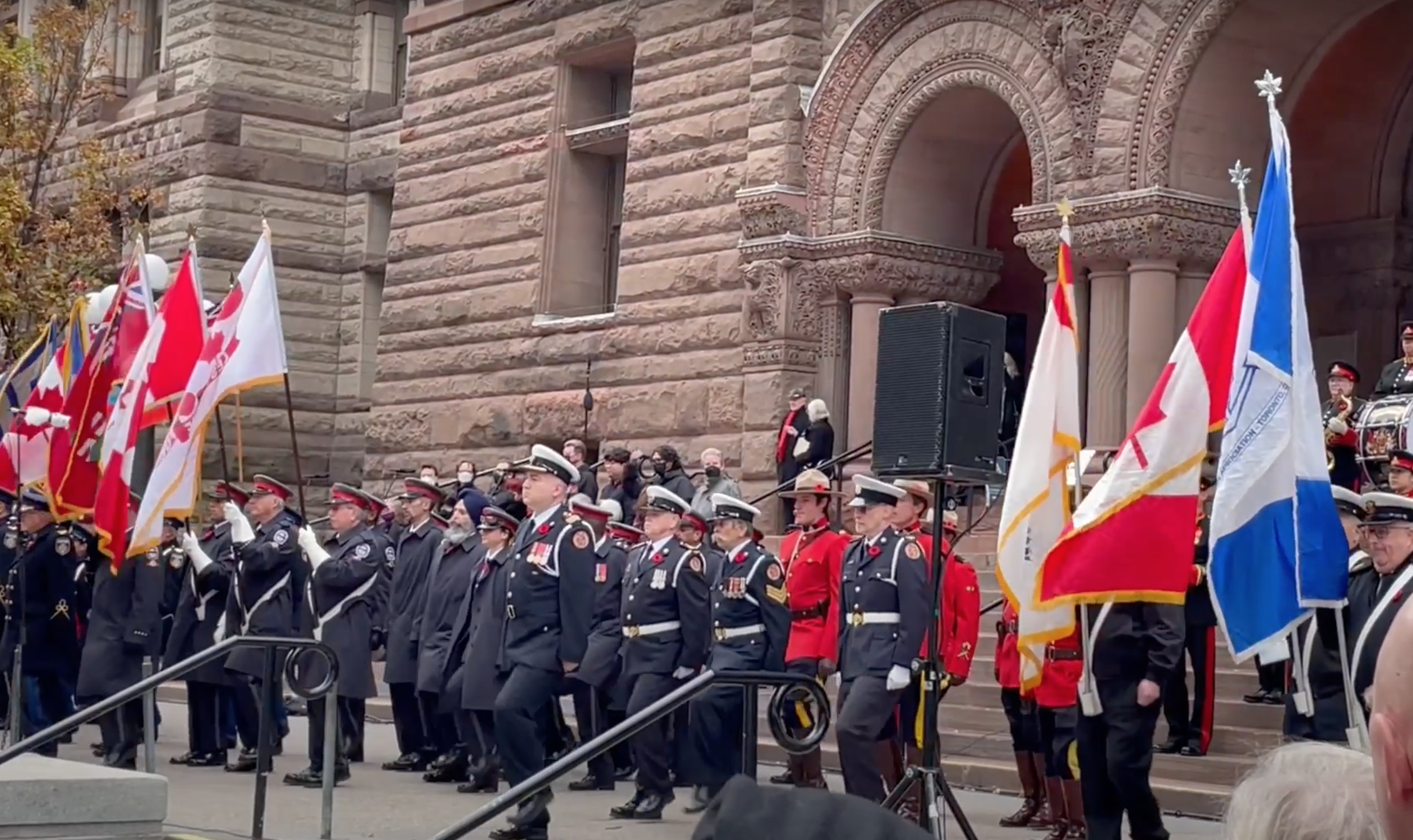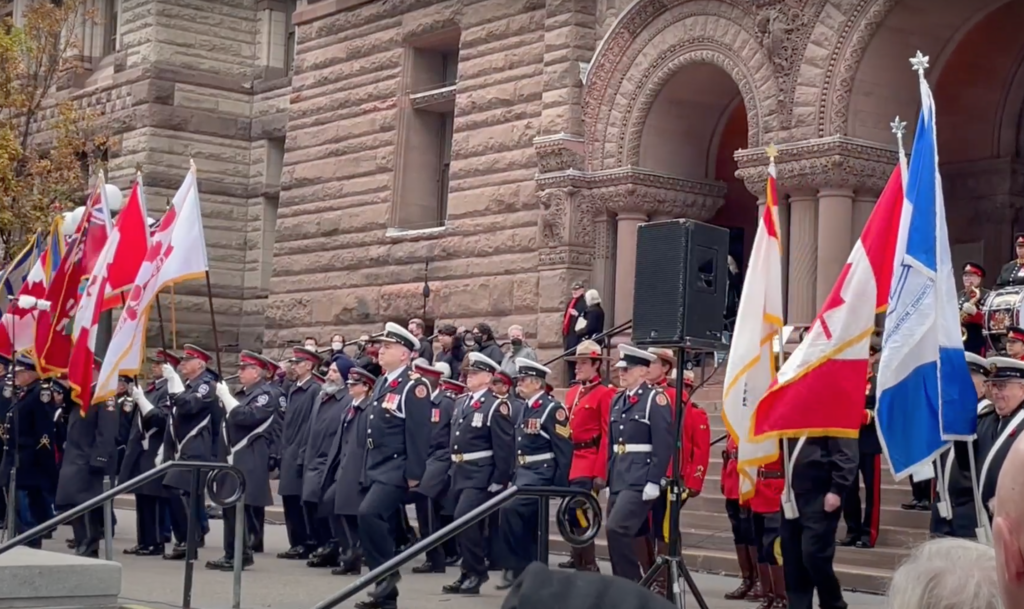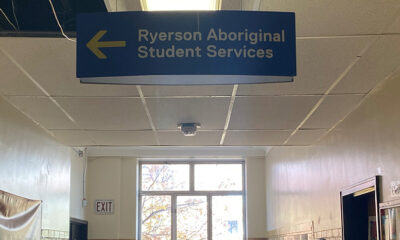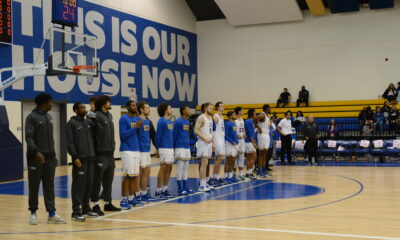News
UberEats now delivers Cannabis to your doorstep
Torontonians are skeptical about the viability of this new service
UberEats has partnered up with dispensaries and started delivering Cannabis to customers in Toronto Ont. last Monday.
UberEats has partnered with Leafly, an online marijuana service which will allow Cannabis consumers to get marijuana products delivered to their doorstep.
The students at Toronto Metropolitan University think that this service will be getting popular very soon.
“I do think that UberEats delivering cannabis will pick up, I just don’t think it will happen now. But the world is always evolving and growing and so is the cannabis industry, so it’s going to grow with the world,” said Amber Fiore, a student at TMU.
In a press release by Leafly, Lola Kassim, General Manager of Uber Eats Canada mentioned that they are providing this service to help fight the illegal market and reduce impaired driving.
“We are partnering with industry leaders like Leafly to help retailers offer safe, convenient options for people in Toronto to purchase legal cannabis for delivery to their homes, which will help combat the illegal market and help reduce impaired driving,” said Kassim in the press release.

These services are only available by three dispensaries in Toronto, Ont.
Joey Nixon, store owner of Toronto Cannabis Authority, feels a little skeptical for the smaller dispensaries in regard to affordable programs.
“Uber has a tendency to take most of the profits for small mom and pops like me. We don’t have the kind of volume the big chain stores have. It’s not something that would work for me’” said Nixon in an interview.
UberEats and Leafly are expecting this to be a viable source of profit and plan to expand even more across the city.
News
Remembrance Day ceremony held in Toronto to remember fallen soldiers
The City of Toronto commemorates those who served in the military with an annual ceremony held at Old City Hall

The City of Toronto commemorates those who served in the military with an annual ceremony held at Old City Hall
(Michael Witkowicz/j-school)
Toronto’s annual Remembrance Day ceremony honoring fallen soldiers and veterans drew hundreds of attendees on Nov. 11.
A memorial service for those who served the country is held annually outside Old City Hall, where thousands of Canadians, including families of service men and women, gather to pay their respects to those who lost their lives fighting in the First and Second World Wars.
Around 10,000 Torontonians died during conflicts across the 20th century, according to the City of Toronto.
The Mayor of Toronto, John Tory, said that while Canadians should be mindful of the sacrifices soldiers have made for the country every day, he emphasized that it is especially important to come together on this special day to honor those who have fallen.

“I think it’s important for us to keep this perspective in mind today,” Tory said. “We can never forget … neither can we assume the way ahead.”
This was not just any Remembrance Day ceremony, this year’s ceremony was also the 80th anniversary of the Dieppe Raid, which Tory called “the deadliest day in Toronto’s wartime history.”
Wendy [Last Name] says, “I do this in support of my father, who is no longer with me.”
She has been going to the annual ceremonies for the past 44 years in support of her father and all the veterans who lost their lives fighting for this country.
Will [Last Name] says that this is something that we should all take time, reflect on, and thank the soldiers for what we have today.
The ceremony featured many traditions and was brought to an end with a procession of RCMP.
News
Sky-high rental prices leave students struggling
One teen is left living out of her car after being unable to afford living downtown.
By Sierra Edwards
Expensive housing prices have made this year’s return to campus difficult for Toronto Metropolitan University students.
Young people are not receiving the help they need to find affordable rentals downtown.
Creative Industries student Seanna Fiedtkou is living out of her car after being unable to find housing.
“I couldn’t keep up with my rent anymore,” Fiedtkou said. “School is in the city every day, and it’s in person. You don’t really have a choice.”

Rising rental prices are starting to impact students’ ability to get their education.
Jolie Savoie, a former politics and governance student, had to take a gap year to save money for living expenses.
“I’m back in my hometown because I couldn’t afford the housing in Toronto,” Savoie said. “I just didn’t have the funding to afford a place on my own.”
Savoie was unhappy with the lack of resources she received from the school.
“The school wasn’t any help, I tried to look into accommodations, but I never really heard back,” she said.
TMU has three student residence buildings. Spyros Zarros, Vice President of operations for TMU Students Union says that’s not enough for students.
Zarros says, “The school is a commuter school to its majority, so off-campus housing is something most students rely on.”
Pitman Hall, Daphne Cockwell Complex, and International Living/Learning Centre are not large enough to accommodate every student who needs housing and is available mainly to first-year students.
News
Students miss class due to GO bus strike
The lack of transportation made some students’ commute longer and much more difficult.
By Henry Stoner
The Nov. 7th GO bus strike caused many problems for students trying to get to their classes.
With no buses running, some students missed classes and had to take the train instead.
Universities are nearing the end of midterm exams and some students worry that they will not be able to get to campus on time.
“I had a lot of important stuff but I couldn’t get there,” said Fiza Seher in a phone call last Monday, a student at McMaster University.
Seher also added that once at campus, it is hard to get back home because there are not many trains at night and that this commute by train would have taken her three hours.

Yusra Syeda, a student at Toronto Metropolitan University said in a phone call last Monday that “certain trains only run at rush hour, what if you have a class at one o’clock?”
She continued to add that because of irregular class times, she would have to leave a lot earlier to get to the city.
Metrolinx Spokesperson Anne Marie Aikins said in a phone call last Monday that she acknowledges many users of GO services are in fact students.
“Our GO buses go to the university campuses, so we know our students rely on that. I know that when they didn’t have those buses last week that was difficult for them,” Aikins added.
She also mentioned that even though service has resumed, a future strike could be expected but did not give an estimate of when.
Take a look at this infographic by Aneesa Bhanji!
-

 News3 years ago
News3 years agoControlled Unhappy Passionate Employees
-

 Arts & Culture3 years ago
Arts & Culture3 years agoMOCA exhibit challenges human behaviour that enables climate crisis
-

 Arts & Culture3 years ago
Arts & Culture3 years agoAs We Rise: Photography from the Black Atlantic art exhibit is now open
-

 News3 years ago
News3 years agoExcluded from debates
-

 News3 years ago
News3 years agoRyerson Aboriginal Student Services planning name change
-

 Entertainment3 years ago
Entertainment3 years agoSocial media app BeReal sparks debate on whether or not it’s a healthier alternative
-

 Arts & Culture3 years ago
Arts & Culture3 years agoThe Royal Agricultural Winter Fair Celebrates its 100th Anniversary
-

 Sports3 years ago
Sports3 years agoTMU Bold lose against UPEI Panthers
